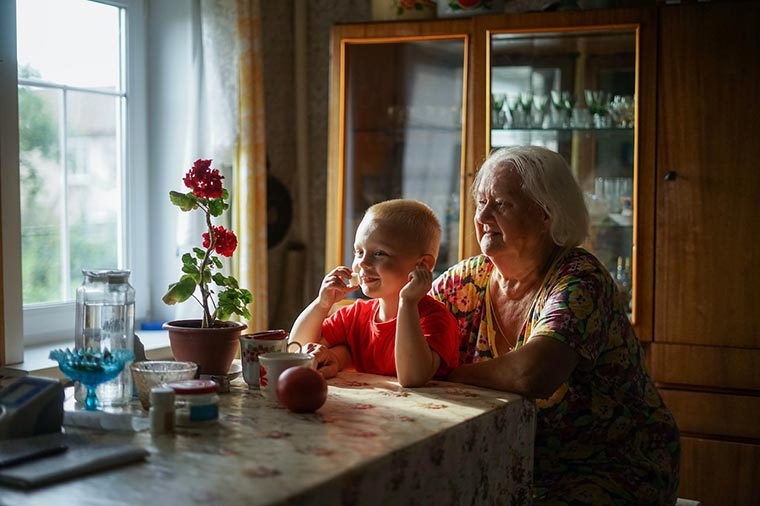
If you are caring for young children and aging parents simultaneously, you are part of the “sandwich generation.” A 2020 report on caregiving in the United States showed that 53 million Americans provide unpaid care for family and friends. 41.8 million of those are caring for individuals aged 50 and older. Almost half of the care recipients are parents of caregivers. On average, family caregivers provide 23.7 hours of care each week. This number goes up to an average of 37.4 hours for those who live with the care recipient, making it equivalent to a full-time job.
Now, add that on top of taking care of your children, keeping your house in order, and maintaining a marriage. Being stretched beyond your limits would be the understatement of the year.
Let this article remind you that you are not alone, and you are allowed to feel all the energy-draining emotions you are experiencing daily. Here are a few tips to get you through each day.
Breathe
Studies have shown that people constantly under a lot of stress forget how to breathe. Deep, mindful breathing tells your brain to slow down that fight or flight response. If something comes up and the answer to the question, “is someone in imminent danger of death or injury?” is No, then take a step back, take five deep breaths, and then respond. Making this a habit can help loosen up your nervous system and keep you from overreacting, lessening your stress levels in the long run.
Ask for help; say Yes to help
You cannot do everything all the time. You will be amazed at how many people would pitch in to help if you ask. Use your community resources for childcare help. Your school’s social workers and guidance counselors are also good resources for finding help for your children and family. If you have a community of worship, they might be able to help, too. Don’t hesitate to ask, and always be open for assistance.
Include your children
Your children are inevitably affected by the dynamics of you providing care for your aging parent, so it’s important to let them know what’s happening. Age-appropriate information about your parent’s condition can help lessen your children’s anxiety and fear. For example, you are caring for a parent recovering from hip surgery. You can tell your 4-year-old, “Nana has a boo-boo on her hip, so we’re going to take care of her for a while.” You can give your children simple tasks like fetching Nana her drink at lunch, or older kids can drive their Nana during check-ups.
Go out
There are days when you’d tell yourself, “I am doing the impossible,” because, to some extent, you are. So, make it a point to take regular breaks. Schedule a day at least every two weeks when you can get out of the house and do something you like – having coffee with a friend, watching a movie, or going to the beach. You can ask a friend or family member to watch over your parent and your kids – you can also offer to pay for their time. Consider hiring people from home care agencies, as well.
Know when to seek professional help
Your caregiving skills have limitations. As time passes, your aging parent may be unable to communicate with you properly or start getting restless and confused. Their trips to the doctor and hospital may also become more frequent. If they are terminally ill, infections may become recurrent, or they might need more aggressive interventions. It would be best to talk to your parent about hospice care as early as possible, ideally before their health starts failing. In-home hospice care services available would cater to your family’s specific needs.
Bottom line
As you take on this impossible task, remember that you can get a hold of things. Keep yourself from spiraling out of control by taking good care of yourself, unwinding regularly, and getting as much help as possible.
Seeing you taking care of a loved one can inspire your kids to be altruistic adults in the future. However, keep in mind that your children also bear witness to how you take care of yourself. Be sure also to be their role model for self-care.
